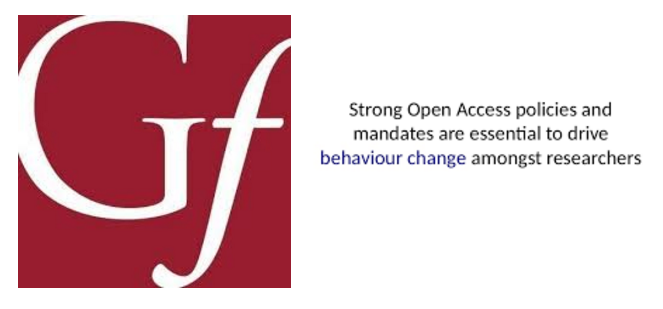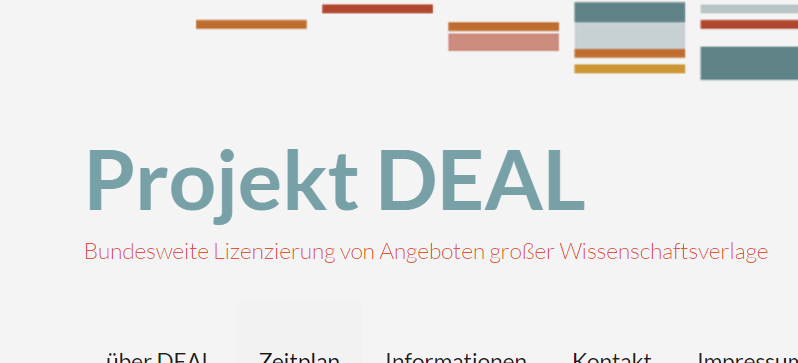
European Space Agency announced an Open Access policy
Previously, ESA released individual images under Creative Commons licenses, but this organizational shift marks a substantial change in the way that ESA shares with the world. The choice of CC BY-SA clears ESA’s content for use in larger repositories like Wikipedia (and Wikimedia Commons), as well as by any individual member of the public. It also reaffirms the organization’s commitment to widely sharing open data and imagery across the web. Read full article on the Creative Commons

Nature | If research funders demand open-access publishing, will subscription journals acquiesce? An announcement today by the publisher of Science suggests they will — as long as that funder is as influential as the Bill & Melinda Gates Foundation.
The global health charity, based in Seattle, Washington, has partnered with the American Association for the Advancement of Science (AAAS) in a year-long agreement to “expand access to high-quality scientific publishing”. This means that Gates-funded research can be published on open-access (OA) terms in Science and four other AAAS journals.
“This is the first time AAAS is offering open-access publishing for Science and the subscription-based sister journals,” says Meagan Phelan, a spokesperson for AAAS in Washington DC.
Read full article on the Nature

Academic.edu is facing mounting pressure from scholars
Academia.edu is facing mounting pressure from academics and open access advocates. It has been challenged because of its dubious business model: many believe that its model is mainly driven by profit-making motive. Problem comes with how Academia.edu is trying to generate revenue. Furthermore, Academia.edu’s business practices lack transparency. Therefore, ‘it is time to deleteAcademia.edu account,’ says Sarah Bond.
Last year, Academia.edu came under fire from scholars when it announced new model of revenue generation. Its new business model that includes premium services such as ‘promotion of articles’ and special data analytics. Some researchers accuse Academia.edu for selling researchers’ personal data. Particularly, Academia.edu’s plan to monetize by ‘recommending articles’ took scholars by a total surprise. They call the new plan ‘pay-to-play’ business model. Recommending articles, for reasons other than relevance, is unethical, according to Dr. Scott F. Johnson. This approach, if aggressively used, can inflate the impact of the paper. Dr. Johnson says, ‘paying for promotion of your work is irresponsible and intellectually dishonest’. However, Academica.edu strongly denies all accusations brought to it. It maintains that it took no action to charge authors for article promotion and never sold authors’ personal data for financial gain.
Researchers also criticized Academia.edu’s deceptive use of high-level .edu domain that is exclusively used by the US institutions of higher education. Academia.edu is neither an institution of higher education nor has any affiliation with them.
Some researchers have announced their intention to boycott Academia.edu and initiated the hash tag #DeleteAcademiaEdu. Others are encouraging fellow researchers to use fully open access repositories and a genuine social media networks that put the interest of academicians first.
Most of the proposed plans by Academia.edu to monetize on its users, its claims it has millions of users, have faced heavy criticism. Academia’s next plan is not clear yet. Ignoring mounting pressure from scholars and moving forward with its plans may cost Academia, at least in the long run.

Researchers funded by the Gates Foundation are facing difficulties publishing on some top-tier journals. This is due to open access (OA) policy that the Gates Foundation and journal publishers follow, according to the Nature’s writer Richard Van Noorden.
The Gates Foundation in 2014 put open access policy that mandates immediate open access publishing. It also requires researchers to make their research data open. This policy came into effect starting January 2017. However, open access policies many top-tier journals such as Nature, Science, the New England Journal of Medicine (NEJM) and the Proceedings of the National Academy of Sciences (PNAS) have do not allow immediate open access. They impose embargo period that ranges from six months to one year depending on the type of discipline.
The Gates foundation is not considering revising its policy or exempting these journals. As a result, some research findings might not be published on these journals. To address the issue, there is ongoing discussion between journal publishers and the Gates Foundation, according to the Nature. In the past, the US National Institutes of Health (NIH) forced journals to comply with its OA policy requirements.
According to the Nature, about 2000 to 2500 articles funded by the Gates Foundation published each year. Most of them, around 92%, are published on journals that comply with what the Gates Foundation requires. That means only 8 % of them will be affected by the Gates Foundation’s OA policy that does not allow embargo imposition.
Different research funders had different open access policies. For instance, the Wellcome Trust allows publishers to impose embargo period (max one year) on research it funds. Read more

German Research Institutes to Boycott Elsevier
About 60 major German research institutions have mounted coordinated pressure on Elsevier –the giant scientific journals’ publisher. These institutions are putting pressure on Elsevier to renegotiate better terms of contract with Elsevier before the current contract runs out at the end of 2016. So far, the two sides failed to agree on contract that satisfies both sides. As a result, German research institutions do not get access to full texts of Elsevier journals per 1 January 2017. They are determined to continue with the boycott until Elsevier meets their demand.
According to Prof Hippler, President of HRK (German Rectors’ Conference), the negotiation with Elsevier is in a deadlock. Because, the parties failed to agree on core issues. The German institutions’ demand is to see significantly improved ‘provision of and access to content (Open Access) as well as pricing.’ To meet their demand Elsevier proposed a new offer. However, its first offer was rejected by the German research institutions, according to the statement released. The reason provided is that the offer does not comply with the principles of Open Access. Due to disagreement, the negotiation has been terminated. Unfortunately this might have dire consequences on research and teaching process. The institutions seem to continue challenging Elsevier until they agree on an outcome advantageous for the German scientific community, nonetheless.
There are two main reasons that have triggered change in scientific journals publishing industry. First, ever-increasing cost of journal subscription is forcing libraries, individuals and groups to take actions (including boycott) against Elsevier and other industry dominating companies. Subscription cost skyrocketed over the past two decades. As a result major publishers enjoy high ( Elsevier 40%) profit margin; something companies in other industries only dream about. Secondly, open access movement, advocates free access to scholarly research output, is shaking the status quo up. Here the argument is that there is no justification for the public to pay (mostly high subscription fees) for research funded by tax payers.
The criticism Elsevier and others are facing is that despite taking some steps, they have not gone far in terms of embracing open access. Those industry dominating companies including Elsevier publish some of the most prestigious journals in many research fields. Individual institutions have very little leverage over those publishers. That is why coordinated action seem to work to some degree. Last year, in a similar way, the Dutch universities forced Elsevier to come to terms with their demand. Sources

